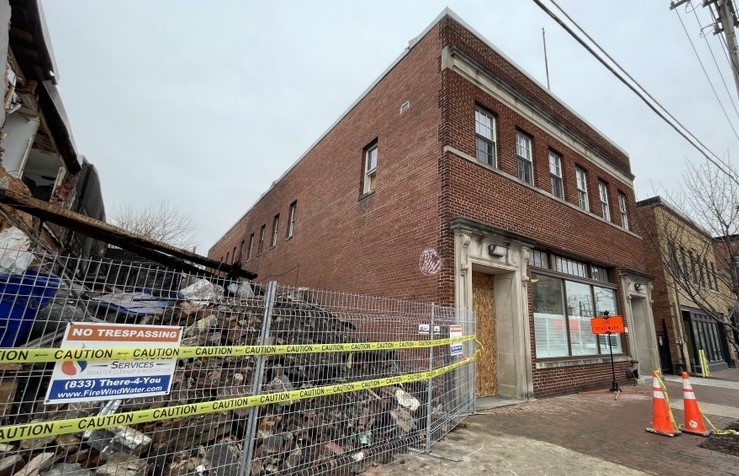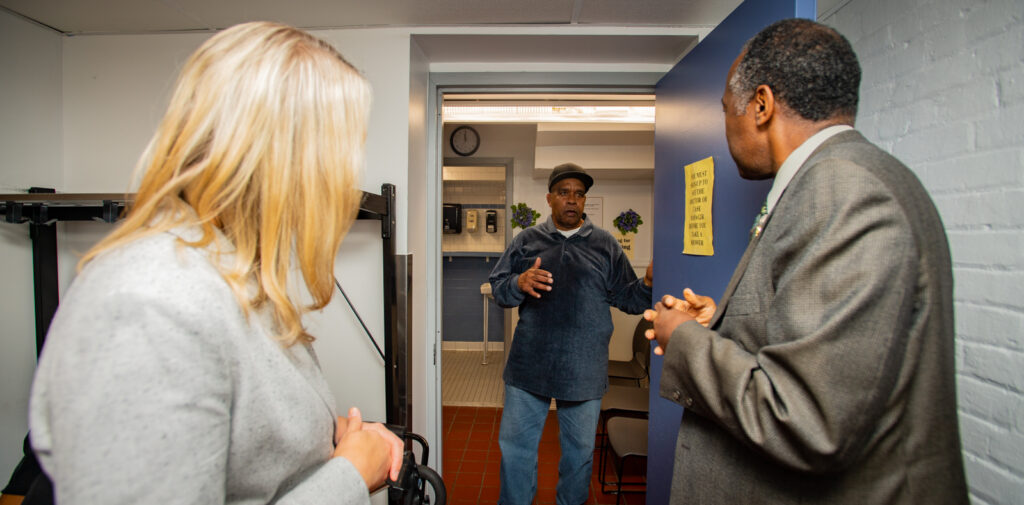For years, Miriam’s Kitchen has been a resource for homeless individuals seeking referrals for identification (I.D.) services in the District. The referrals support clients with instructions and financial assistance (to pay fees) as they pursue the government documents through regular channels. Beginning January 1, Miriam’s will no longer offer this service.
Bob Glennon, director of social services at Miriam’s Kitchen, explained the reasoning behind decision. “Our Mission at Miriam’s is to end chronic homelessness in D.C. Part of the decision was how we want to spend our time and energy toward that mission,” Glennon said. He added that as a result of this decision not to provide I.D. referral services, Miriam’s will be able to have a greater impact with other initiatives. In particular, it plans to redouble efforts toward providing clients with stable housing.
At present, Miriam’s is one of only three District organizations certified by the Department of Human Services (DHS) to provide referrals for people needing assistance to obtain identification documents, birth certificates, and police clearances. The others are Foundry United Methodist Church and Chevy Chase Presbyterian Church (USA). Foundry provides an I.D. and Walk-in Ministry every Friday and on the first and third Saturday of each month for up to 36 individuals with appointments. Chevy Chase Presbyterian’s Transitional Assistance Program is open Tuesday, Wednesday and Friday mornings, offering 15 appointments per day. Both churches offer assistance in obtaining birth certificates and D.C. non-driver identification cards. These cards are for individuals who do not qualify to receive drivers licenses, such as adolescents or people who cannot drive.
Due to the limited number of appointments available at these locations, it is unclear if they will be able to meet the increased demand for I.D. services when Miriam’s new policy goes into effect in 2016.
Organizations that are certified by DHS to provide clients with identification service referrals must have a system in place to receive mail on behalf of clients. Few social service providers in D.C. have this ability, but they are able to play a limited role in connecting homeless individuals with such services. According to Kathleen Stephan, community resource and quality assurance coordinator at Bread for the City, providers such as Bread play an important role in helping clients understand the processes they will have to go through in order to receive new identification documents.
“It’s difficult for folks to get this information. The system’s not transparent,” said Stephan, who noted that there was a marked increase in the past year in the number of requests made to Bread for help of this kind. Stephan also emphasized the importance of attaining proper I.D. for people experiencing homelessness.
“Not having a photo I.D. creates extra barriers in an already difficult system,” she said.
Advocates from Miriam’s Kitchen and other organizations such as Bread for the City believe that a systemic change in the way I.D. requests are processed in the District is needed.
According to Glennon, these services would ideally be available at whatever agency an individual is already connected to, thus removing the complication of coordinating separate and often difficult-to-plan trips to other agencies. Miriam’s advocates for several key service improvements from the city, including expanded access to the voucher for non-driver I.D. and the creation of similar vouchers to obtain birth certificates and driver’s licenses.
Part of the Interagency Council on Homelessness Emergency Response and Shelter Operations committee (ERSO) agenda is to consider improvements to the application process for I.D. and birth certificates. DHS is working with the District Department of Motor Vehicles (DMV) to amend the “Social Service Proof of Residency” form to allow I.D. applicants to use a family, friend or non-residential service provider’s address in their application, according to a December 8 letter from DHS Director Laura Zeilinger to Councilmember Grosso.
Glennon is hopeful that Miriam’s decision will add urgency to the city’s progress in making the process more accessible and transparent.
“We’re still very committed to the advocacy end of I.D. issues,” he said.







